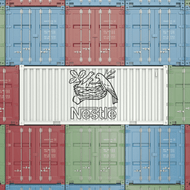Higher prices take a toll on Nestlé
Posted by Emily on 21st Oct 2023 Reading Time:
The global surge in consumer prices has significantly impacted spending, contributing to slower sales growth at Nestlé, the world's largest food and beverages company. This slowdown comes in light of the company implementing an average price increase of 8.4% across its diverse portfolio, which includes products ranging from KitKats to Nescafe.

These measures have been introduced in response to escalating costs, a situation further complicated by factors such as the COVID-19 pandemic and geopolitical tensions, including Russia's invasion of Ukraine.
Mark Schneider, Nestlé's CEO, expressed the company's efforts to "navigate historic inflation levels" and projected optimism about a positive turnaround in sales volumes or real internal growth (RIG) in the second half of the year. Despite this, the company's share price has declined by more than 12% over the past six months, with a further 0.3% drop to SwFr103.08 following the announcement.
In the first nine months of the year, organic sales growth was reported at 7.8%, marking the slowest rate in three years. This increase was below the average analyst estimate of 8.1%. The real internal growth (RIG) fell 0.6%, which aligned with market expectations. However, there was a slight improvement in the third quarter, where RIG reduced to a decline of 0.3%.
 Vanda Hlbočanová, CC BY-SA 4.0, via Wikimedia Commons
Vanda Hlbočanová, CC BY-SA 4.0, via Wikimedia Commons
Nestlé's financial health has been influenced by various segments, with pet care emerging as a significant contributor to organic growth, marked by double-digit sales increases for brands like Purina and Felix. Other segments, including coffee, confectionery, and infant nutrition, also reported positive sales.
The company confirmed its full-year outlook, projecting organic sales growth between 7% and 8% and an underlying trading operating profit margin between 17.0% and 17.5%. However, analysts and investors express concern, suggesting that the continuous price hikes might be reaching a tipping point. They recommend that companies should pivot towards more focused marketing and innovation strategies, especially considering the ongoing cost of living crisis and competition from retailers' private label brands.
An interesting development in the consumer market is the influence of weight-loss drugs like Novo Nordisk's Wegovy on food consumption.
Despite speculation about the potential impact on food sales, a Nestlé spokesperson clarified that they had not observed any effect on their sales from these weight-loss products. This statement comes even after reports of a slight pullback in food consumption related to appetite-suppressing drugs, as mentioned by Walmart, the world's largest retailer.
 Paul Sableman from St. Louis, MO, CC BY 2.0, via Wikimedia Commons
Paul Sableman from St. Louis, MO, CC BY 2.0, via Wikimedia Commons
Investors are now keenly observing volume trends, as a positive shift would be a catalyst for improving stock performance. While pricing has moderated, certain categories like water and health sciences continue to face challenges. Executives have noted that while the pace of rising costs has decelerated, consumers will likely continue to face higher prices for everyday products, as companies are still trying to offset years of increased expenses. The focus moving forward will be on more targeted pricing strategies, tailored by brand and country, to ensure sustainable growth.

